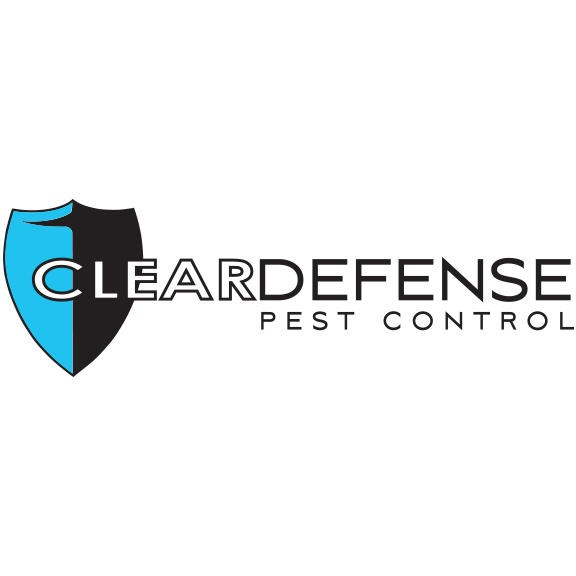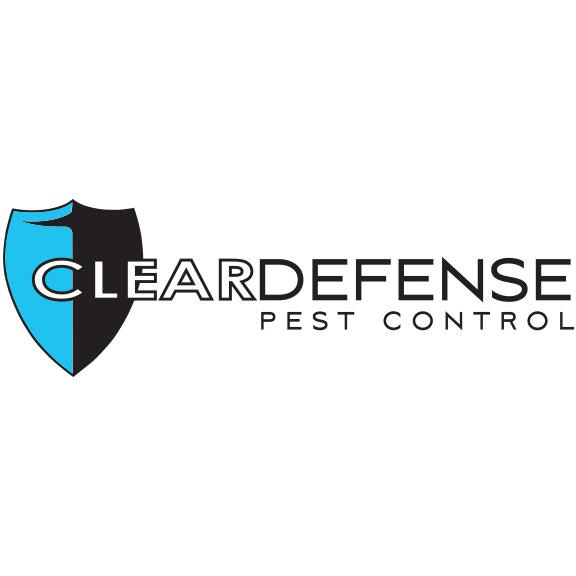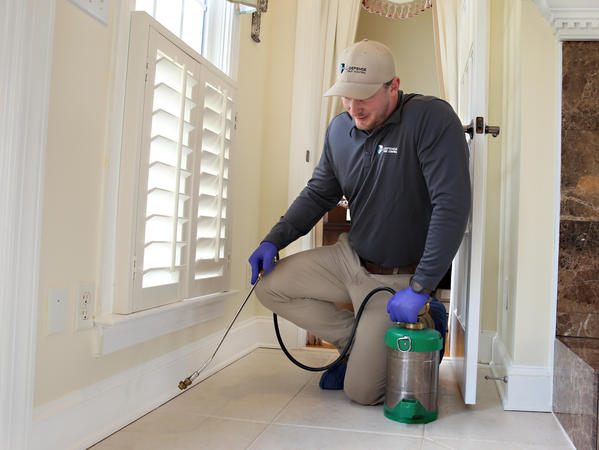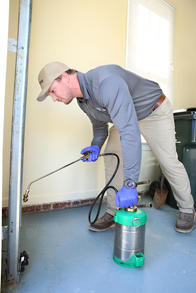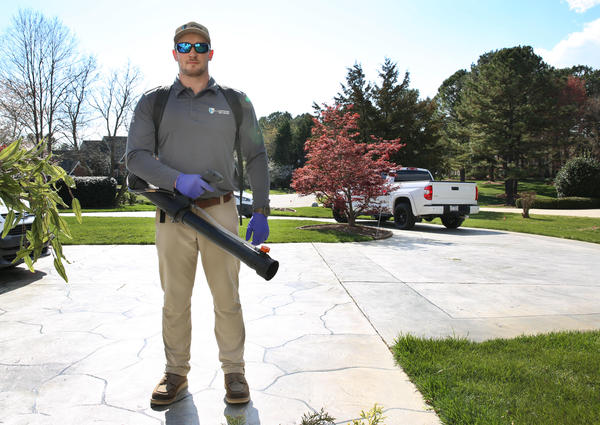WHAT STINGING INSECTS ARE IN CHATTANOOGA?
What stinging insects are in Chattanooga? They may not have been invited, but stinging insects are inevitable guests to most outdoor gatherings. These fun-stealers send more than 500,000 people to emergency rooms each year and are especially active during the second half of summer and early Fall when the colonies forage for food that will sustain their queens during the winter. It is during this time that most people fall victim to the physical and financial sting that these nasty critters pose.
THERE'S A BUNCH OF THE LITTLE DEVILS!
Worldwide, there are an estimated 9,000 species of ants, 20,000 species of bees, and 800 species of stinging wasps. Again, those of medical risk are social, existing in colonies consisting of numerous females known as "workers" that defend by stinging. In the U.S., social Hymenoptera include all 700 or so species of ants, but only about 35 species of bees, and about 30 species of wasps.
What stinging insects are in Chattanooga? Two varieties of flying stinging insects, the hornet and the carpenter bee, pose significant threats to one's health and home.
WHAT ABOUT HORNETS?
Hornets live in large colonies and their nests are shaped like an inverted teardrop. While their venom is no more dangerous than other stinging insects, they are much more aggressive when disturbed and tend to sting repeatedly. This behavior adds to the potential for greater skin irritation or a serious allergic reaction.
CARPENTER BEES NOT ONLY DRILL, THEY STING!
Carpenter bees build their nests by drilling perfectly round tunnels into soft woods. Coarse, natural colored sawdust will often be present near the entrance to the nest. Over time, these tunnels can severely compromise the support structure of a building.
HANDY TIPS FOR CONTROL
Here are some tips for protecting your health and property from stinging insects:
1. Wear shoes, especially in grassy areas.
2. Paint/stain untreated wood.
3. Remove garbage.
4. Keep trashcans covered.
5. Do not swing/swat at stinging insects.
6. Seek immediate medical attention if stung—reactions can be severe.
Due to the aggressive nature of these and other pesky insects, homeowners should not attempt to remedy an infestation on their own. Contact us at www.cleardefensepest.com. We can help!
WHY ARE STINK BUGS SO BAD IN KNOXVILLE RIGHT NOW?
Why are stink bugs so bad in Knoxville right now? Fall is just around the corner and the shorter days and falling temperatures motivate stink bugs to run for cover. If they sheltered beneath tree bark or mulch, that would be one thing, but they prefer moving into your home over winter, piling into cracks and crevices by the thousands. Yuck.
The brown marmorated stink bug (Halyomorpha halys) is an insect in the family Pentatomidae, native to China, Japan, the Korean Peninsula, and Taiwan. In September 1998 it was collected in Allentown, Pennsylvania, where it is believed to have been accidentally introduced. The nymphs and adults of the brown marmorated stink bug feed on over 100 species of plants, including many agricultural crops
INVADING YOUR HOME
Perhaps the biggest problem for homeowners is when hordes of the little stinkers seek shelter in homes and structures, similar to the behavior of the multicolored Asian lady beetle. Stink bugs don’t harm people, but can give off a very unpleasant odor when crushed or vacuumed.
HOW TO MANAGE
Barrier exclusion is very important. Seal and caulk areas that may give access to the wall or house. If this is not completely successful and stink bugs are still entering your home, seal or caulk around baseboards, windowsills, and any points where you see them invading your castle. When vacuuming up the little devils, some people use a dedicated shop vac to avoid stinking up their household vacuum cleaners.
HOW TO EXCLUDE:
1. Adjust or install tight-fitting sweeps or thresholds at the bottom of exterior doors.
2. Install weather stripping around other parts of the doorframe.
3. Seal utility openings where air conditioner pipes, phone, cable TV and other wires enter the foundation and siding. Holes can be plugged with caulk, cement, urethane foam, or copper mesh.
4. Caulk around windows, doors, siding and fascia boards.
5. Keep window screens in good condition and install insect screening behind attic gable vents.
Why are stink bugs so bad in Knoxville right now? Contact us at www.cleardefensepest.com —the crew here at ClearDefense Pest Control will be happy to treat your property and help you control these little mobile stink bombs!
ARE MOSQUITOES BAD IN NORTH CAROLINA?
Mosquitoes thrive in moist, humid environments and the warm, temperate environment in North Carolina is a perfect place for these dangerous biting pests.
The Best Defense Against Mosquito Bites.
Protect yourself and your family from mosquito bites by applying mosquito repellant and making your neighborhood less inviting for mosquitoes. Mosquitoes are known to carry many deadly diseases, including west Nile virus, yellow fever and malaria.
1. Reduce time spent outdoors, particularly during early morning and early evening hours when mosquitoes are most active;
2. Wear light-colored long pants and long-sleeved shirts; and
3. Apply EPA-approved mosquito repellents to exposed skin areas.
Most Common Cause of Mosquito Problems.
Artificial containers present the most common cause for mosquito problems. One five-gallon bucket can produce hundreds of mosquitoes in a ten-day period.
Make Your Abode Less Mosquito-Friendly:
1. Pour out standing water, and remove containers that can hold water;
2. Fill tree holes;
3. Keep swimming pools and bird baths clean;
4. Report debris or drainage problems in ditches and culverts;
5. Keep gutters clean and in good repair;
6. Repair leaky outdoor faucets and change the water in bird baths and pet bowls at least twice a week; and
7. Check window and door screens.
Are mosquitoes bad in North Carolina? Yup! We can help! Please contact us at www.cleardefensepest.com/.
CAN CAMEL CRICKETS HURT YOU?
This group of crickets is classified as an occasional invader and a nuisance pest. They don’t pose any health threats to people. Camel crickets can overwinter in homes, normally as nymphs or young adults. Females lay their eggs in early spring and they hatch during April.
APPEARANCE
Similar to the animal they’re named after, camel crickets are light to dark brown with a hump-back appearance. They have six legs including hind legs that are often as long as the rest of their body. They also have very long antennae, often longer than their bodies. It is believed this is because they are nocturnal insects and rely heavily on their sense of touch.
Adults grow up 1.25” inches in body length. Camel crickets do not have sound-producing structures on their back legs, and adults do not have wings, unlike other cricket species. Their only form of defense is to leap when frightened.
HABITAT
Like many insect pests, camel crickets are attracted to cool, moist or humid areas in and around our homes. The crickets often invade storage buildings, crawlspaces, basements, garages and indoor areas where moisture may be a problem (bathrooms, laundry rooms, etc.). They can damage stored items, such as garments and linens packed in boxes in a garage or basement.
CONTROL METHODS
1. Caulk or seal gaps and openings around windows frames, doors, foundation and clothes dryer vents, crawlspace access doors, soffits, as well as where heating/AC and plumbing lines pass through the foundation.
2. Install weather-stripping along the bottom of house and garage doors so that it fits tightly against the threshold.
3. Reduce moisture indoors, as well as in other critical areas such as basements or crawlspaces.
4. Keep ground cover and mulch at least 12 inches or more away from the foundation. When possible, use an inorganic cover, such as gravel, up near the foundation.
5. Keep ground cover and shrubs away from the foundation and siding. Do not stack firewood against the house. Remove piles of lumber or other clutter under decks that might attract crickets and other pests.
6. Place sticky boards, such as those used for cockroaches and mice, in corners and behind appliances to catch crickets that enter your home.
Got ‘em? We can help. Please contact us at www.cleardefensepest.com/
ARE ORB-WEAVER SPIDERS DANGEROUS?
Orb-weaver spiders are considered beneficial to humans. They eat flies, mosquitoes, ants, and other pest insects. Although many can give a painful bite, no orb-weaver spiders are considered dangerous to humans (except to rare individuals who have severe allergic reactions to insect and spider bites).
Orb-weaver spiders are members of the spider family Araneidae. They are the most common group of builders of spiral wheel-shaped webs often found in gardens, fields and forest. "Orb" can in English mean “circular,” hence the English name of the group. Araneids have eight similar eyes, hairy or spiny legs, and no stridulating organs.
With 3122 species in 172 genera worldwide, Araneidae is the third-largest family of spiders. Generally, orb-weaving spiders are three-clawed builders of flat webs with sticky spiral capture silk. The building of a web is an engineering feat, begun when the spider floats a line on the wind to another surface. The spider secures the line and then drops another line from the center, making a “Y.” The rest of the scaffolding follows with many radii of non-sticky silk being constructed before a final spiral of sticky capture silk.
Araneid species either mate at the central hub of the web, where the male slowly traverses the web, trying not to get eaten, and when reaching the hub, mounts the female; or the male constructs a mating thread inside or outside the web to attract the female via vibratory courtship, and if successful, mating occurs on the thread. The much smaller males are attacked during copulation and are cannibalized in up to 80% of the cases.
Check this out: In 2009, workers at a Baltimore Wastewater Treatment Plant called for help to deal with over 100 million orb-weaver spiders living in a community that managed to spin a phenomenal web that covered some 4 acres of a building with spider densities in some areas reaching 35,176 spiders per cubic meter. Wow.
Got ‘em? Don’t want ‘em? Contact us at www.cleardefensepest.com. We can help!
CAN YOU GET RID OF GERMAN COCKROACHES?
Can you get rid of German cockroaches? The German cockroach is very successful at establishing an ecological niche in buildings and is resilient in the face of many pest-control measures. To be effective, control measures must be comprehensive, sustained, and systematic; survival of just a few eggs is quite enough to regenerate a nearly exterminated pest population within a few generations, and recolonization from surrounding populations often is very rapid, too.
Why is the German cockroach so hard to control?
1. lack of natural predators in a human habitat
2. prolific reproduction
3. short reproductive cycle
4. the ability to hide in very small refuges
5. sexual maturity attained within several weeks, and
6. adaptation and resistance to some chemical pesticides
Where do they like to hide?
German cockroaches are thigmotactic, meaning they prefer confined spaces, and they are small compared to other pest species, so they can hide within small cracks and crevices that are easy to overlook, thereby evading humans and their eradication efforts.
Adaptive selection
A strain of German cockroaches has emerged that reacts to glucose as distastefully bitter. They refuse to eat sweetened baits, which presents an obstacle to their control, given that these baits are an economical and effective means of regulation.
Exclusion
1. German cockroaches can initially infest a structure when infested grocery bags are brought inside. Inspect groceries for cockroaches before storing. Keep grocery bags in outside storage areas.
2. Cockroaches breed prolifically in corrugated cardboard boxes. Discard unnecessary boxes immediately.
3. Keep doors and windows shut.
4. Keep window and soffit screens in good repair to prevent cockroaches from entering your home.
5. Check attic vents and make sure that large openings around outside drainage lines and sewer vents are screened or sealed. Use tightly packed steel wool as a temporary filler until openings can be sealed properly.
6. Caulk or otherwise seal cracks and gaps around frames of doors and windows and around plumbing and electrical to help prevent cockroaches from entering your home.
7. Seal gaps between door frames and doors with weather stripping.
8. Children can transport cockroaches from school to home in book bags and lunch containers. Inspect these items regularly.
9. Dwellings such as apartments that are separated by a common wall are particularly difficult situations. An infestation can migrate between apartments via the plumbing within a common wall. Therefore, cockroaches from one apartment can easily migrate to another apartment, infesting a “clean” dwelling. To help prevent this, caulk holes in common walls and around plumbing.
Got ‘em? We can help! Please contact us at www.cleardefensepest.com/.
DO MOSQUITO HAWKS ACTUALLY EAT MOSQUITOES?
Do mosquito hawks actually eat mosquitoes? Nope. Adults and larvae do not feed on mosquitoes. Nor do they sting or bite. Although some people think these flies look like Texas-sized mosquitoes, they have wrongly been called “mosquito hawks.” They are actually large tan-colored, fragile crane flies with long, spindly legs.
The larvae of some crane fly species consume other living aquatic insects and invertebrates, which could hopefully include mosquito larvae. Many adults, however, have such short lifespans that they do not eat at all and, despite widely held beliefs that the adult crane fly preys on mosquito populations, the adult crane fly is anatomically incapable of killing or consuming other insects.
Numerous other common names have been applied to the crane fly. Many of the names are more or less regional in the U.S., including mosquito hawk, mosquito eater, gallinipper and, our favorite, gollywhopper. They are also known as daddy longlegs around the world, not to be confused with daddy-long-leg spiders (arachnids of the order Opiliones or the family Pholcidae).
The adult female usually contains mature eggs as she emerges from her pupa, and often mates immediately if a male is available. Males search for females by walking or flying about looking for a date. Copulation takes a few minutes to hours and may be accomplished in flight. Adults have a lifespan of 10-to-15 days. The female immediately oviposits, usually in wet soil or mats of algae. Some lay eggs on the surface of a water body or in dry soils, and some reportedly simply drop them in flight. Most crane-fly eggs are black in color. They often have a filament, which may help anchor the egg in wet or aquatic environments. The larvae of crane flies are known commonly as leatherjackets.
Although generally not considered an agricultural pest, the larvae of some species have been observed on some crops, including vegetables, fruits, cereals, pasture, lawn grasses, and ornamental plants.
So, do mosquito hawks actually eat mosquitoes? No. And they’re really crane flies. However, if you have some pesky pests around, contact us at www.cleardefensepest.com. We can help!
DOES A MALE MOSQUITO BITE YOU?
Does a male mosquito bite you? Nope. The female mosquito of the species is the one that bites (males feed on flower nectar), because she requires blood to produce eggs. Her mouthparts are constructed so that they pierce the skin so she can suck the blood out. Her saliva lubricates the opening. It’s the saliva plus the injury to the skin that creates the stinging and irritation we associate with mosquito bites.
Unfortunately, mosquitoes are carriers for a host of diseases, including malaria, yellow fever, West Nile virus, and Dengue fever. There are hundreds of species of mosquitoes belonging to the family Culicidae.
You can ward them off by using insect repellents and limit your exposure to mosquitoes when outdoors by using a fan or by covering exposed skin with light-colored clothing and a hat. Mosquitoes tend to be more of a problem from dusk to dawn.
Ways to avoid mosquito bites and better protect against mosquito-transmitted diseases include:
• Applying insect repellant containing DEET, picaridin, oil of lemon-eucalyptus or IR3535 when outdoors and use as directed on the product label. Apply repellant over top of sunscreen and reapply every four to six hours.
• Minimizing outside activity between dusk and dawn when mosquitoes are most active, though it is important to note that mosquitoes that transmit chikungunya are active throughout the day.
• Wearing long pants, long-sleeved shirts and closed-toe shoes when outdoors.
• Eliminating areas of standing water around the home including clogged gutters, birdbaths, flowerpots, tires and kiddie pools or untreated pools. Mosquitoes need only half an inch of water to breed.
• Screening windows and doors and patching torn screens.
Does a male mosquito bite you? No. But his girlfriends do. Mosquito season is just around the corner, so if you are concerned about these little invaders where you live, please contact us at www.cleardefensepest.com. We can help!
WILL COCKROACHES GO AWAY IN THE WINTER IN CHARLOTTE NC?
Will cockroaches go away in the winter in Charlotte NC? Nope, sorry. Cockroaches love warm, moist areas, so winter is an ideal time for homeowners to take the time to cockroach-proof their homes and, in turn, help reduce illness and potential household allergy triggers for themselves and their families.
Cockroaches have been linked to some of the worst illnesses around, including plague and salmonella. As they root around in dumpsters and sewers, germs and bacteria stick to their bodies, making it easy for them to transmit these pathogens. Cockroaches are also known to fuel allergy symptoms, especially in children, through the allergens found in their saliva and droppings.
When roaches enter warm structures, where there is plenty of food and water, they can remain active in the winter months. To help prevent cockroaches from moving in, we recommend that you take note of the following cockroach prevention tips:
• Keep the home – especially the kitchen and bathrooms – free of crumbs and debris.
• Disinfect counters and food surfaces.
• Do not let dirty dishes pile up in the sink – the food leftovers attract cockroaches looking to feed.
• Take out trash frequently, and store it in a sealed receptacle.
• Transfer open boxed food items from cardboard into sturdy, sealed containers.
• Keep pet food in a sealed container and wash pet bowls frequently.
• Vacuum at least once a week using a vacuum with a HEPA filter.
• Dust hard surfaces frequently with a dust rag or damp cloth.
• Maintain the humidity level in the house at about 50 percent.
Will cockroaches go away in the winter in Charlotte NC? Nope, sorry, they won't. So, be sure to keep your home as clean as possible to avoid a nasty roach infestation. If they do find their way into your home, contact us at www.cleardefensepest.com. We can help!
ARE THERE BLACK WIDOWS IN DURHAM NC?
The black widow spider spins irregular webs, which is built at night near ground level. Once complete, these spiders hang upside-down in their webs.
THREATS
Bites will only cause localized pain, however, if a substantial amount of venom is injected which leads to pain, muscle rigidity, vomiting, and sweating lasting 3-to-5 days.
The venom of the black widow spider is reported to be 15 times stronger than a rattlesnake’s Although most people who are bitten by the black widow spider suffer no serious damage. The bite can be fatal to small children, the elderly or the infirm. Only the bites of the females are dangerous to humans.
HABITAT
Outdoors, black widow spiders commonly live in protected areas like under stones and in firewood piles, barns, outhouses and sheds. Indoors, black widows prefer cluttered areas of garages, basements and crawl spaces.
AVOIDING BLACK WIDOW SPIDER BITES
1. Reduce clutter in basements and garages to eliminate hiding spots.
2. When spider webs are visible, use caution before putting your hands or feet in that area.
3. Wear heavy gloves when moving items that have been stored for a long period of time.
4. Shake out shoes before wearing them.
5. Store firewood at least twenty feet from the home and five inches off the ground.
If you suspect a spider infestation, contact us at www.cleardefensepest.com immediately!
ARE KISSING BUGS IN NC?
Are kissing bugs in North Carolina? Yes, sadly, they are. Kissing bugs are found in North Carolina and other southern states of the U.S. The raunchy little critters are also known as assassin or cone-nosed bugs. Like mosquitoes, kissing bugs feed on blood from animals or people. The bugs get their name because they crawl around your face while you sleep and bite around your eyes and lips.
Most kissing bugs (triatomines) hide out during day and search for blood during night (vampire-like) when the host is asleep, and the air is cooler. Odors and heat guide these bloodsuckers to their chow. Carbon dioxide emanating from breath, as well as ammonia, short-chain amines, and carboxylic acids from skin, hair, and exocrine glands from vertebrate animals, are among the volatiles that attract triatomines. Vision also serves for orientation. At night, adults fly to houses attracted by light.
IT’S NOT THE BITE
The kissing bugs can deliver the Chagas (T. cruzi) parasite to humans and wild mammals (birds are immune to the parasite). According to the CDC, it’s not the bite itself that transmits the parasite. Here's the nasty news: The bug bites and then defecates. “The parasite is in the feces. If the feces from an infected insect gets into the wound, that is when we see an infection.” Transmission usually happens when a person accidentally rubs the poop into the bite wound or into a mucous membrane such as the eye or the mouth. That’s cringeworthy.
WHERE CAN YOU FIND THESE CREEPY LITTLE VAMPIRES?
Kissing bugs can hide in cracks and holes in beds, floors, walls, and furniture. They are most likely to be found:
1. Near places where a pet, such as a dog or cat, spends time.
2. In areas where mice or other rodents live.
3. Near beds, especially under mattresses or on furniture close to the bed.
PREVENTION
1. Seal gaps around windows and doors. Fill in any holes or cracks in walls or screens that could let kissing bugs into your house.
2. Let your pets sleep inside, especially at night. Keep pets from sleeping in a bedroom. Keep clean areas where your pet sleeps.
3. Clean up any piles of wood or rocks that are up against your house.
Are kissing bugs in NC? If you think you might have kissing bugs around, please contact at www.cleardefensepest.com. We can help!
DO I NEED PEST CONTROL IN THE WINTER IN TENNESSEE?
Fall and winter temperatures will bring out pesky critters. They want to invade your warm and comfy home! You should pest proof your house!
Do I need pest control in the winter in Tennessee? Absolutely! Now is the perfect time for you to be proactive and complete simple home improvements to help pest proof your home. The last thing you want is rodents, ants, cockroaches, or spiders setting up camp inside your abode this fall and winter. Expect to see more bugs when it cools, lots of them! It’s best to get ahead of what’s coming!
One of the best ways to limit unwanted intrusions by insects, rodents, birds, squirrels and other pests is to deny them entry — a procedure known as pest proofing. Many critters seek refuge in homes and other buildings in response to changes in weather, such as extended periods of rain or drought, or the onset of cooler temperatures in autumn. Taking steps to block their entry before they end up inside can greatly reduce the chances of invasion.
We recommend the following tips to assist you to pest proof your home this spring:
• Seal any cracks on the outside of the home with a silicone-based caulk, including entry points for utilities and pipes.
• Replace weather-stripping and repair loose mortar around the foundation and windows.
• Keep tree branches and shrubbery well-trimmed and away from the house. Overhanging branches can act as critter highways into the home.
• Repair fascia and rotted roof shingles.
• Keep mulch at least 15 inches from the foundation.
• Keep basements, attics, and crawl spaces well ventilated and dry.
• Store garbage in sealed containers and dispose of it regularly.
• Avoid leaving pet food out in dishes for long periods of time.
Do I need pest control in the winter in Tennessee? Yes, you do! We can help control those pesky little fellas before they move in and make your house their home. Please contact us at www.cleardefensepest.com. We can help!
